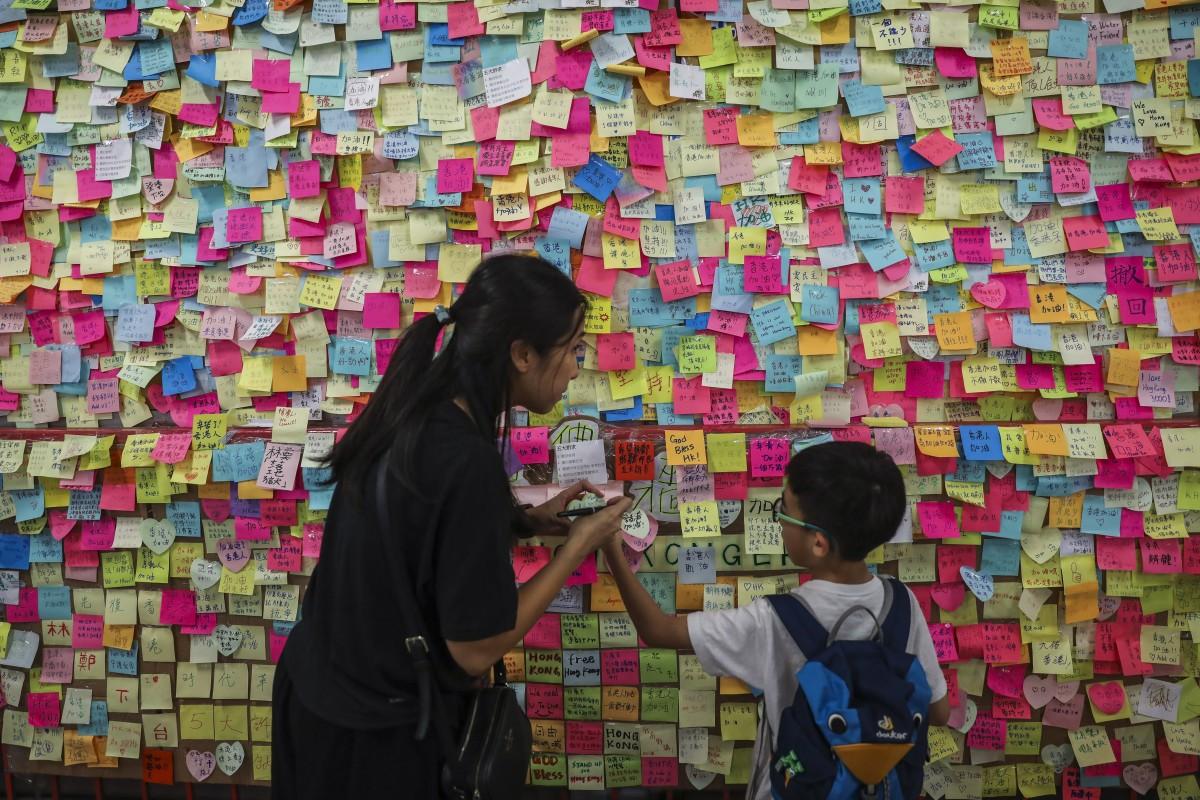On Monday Nov. 18, 50.8 percent of College Government (CG) senators voted to abstain on a proposal to use the CG spam board outside of Mail Services in the Lulu Chow Wang Campus Center for a Lennon Wall, a public art space that allows for participants to peacefully express their sentiments about the ongoing Hong Kong protests through written messages and artwork. 33.9 percent of senators voted in favor, while 15.3 percent voted against the proposal. Though we are two individual students with connections to Hong Kong, we do not represent a universal political stance amongst all students from Hong Kong at Wellesley. We are writing to express our disappointment with the failure of the proposal — particularly with regard to the majority of senators who chose to abstain.
The Lennon Wall was proposed with the goal of not only encouraging Wellesley students to educate themselves about the protests and engage in dialogue, but also providing a positive space on campus for students with connections to Hong Kong. Though Lennon Walls have sprouted up in Hong Kong during past protests, the walls have their roots in the anti-government protests that occurred in the Czech Republic in the late 1980s. We brought forward the proposal as part of a group of Wellesley students with ties to Hong Kong, previously having organized the “What’s Happening in Hong Kong” panel that occurred on Oct. 26.
The initial proposal mandated all postings on the wall follow the Senate Policy and Ethics Committee (SPEC) spam guidelines (e.g contact information, expiration date) and would include a statement affirming that the views and opinions expressed by any posting on the Lennon Wall will be solely those of the student posters and would not be reflective of the position of College Government or any student groups.
We requested to use the CG board as it is located in a central and accessible location on campus. We were offered the staircase leading up to the Lulu Dining Hall but decided against it, since we believe that students have the right to choose whether or not to engage with material on the Hong Kong protests — much of which focuses on an excessive state and police violence.
During Senate discussions, though some senators brought up concerns about the Wall including derogatory or inflammatory content and others suggested the location may read as as CG endorsement, the discussions mainly focused on the logistics of the installation. For example, ample time was spent discussing the best ways for students to make postings in line with SPEC regulations and how violations would be regulated.
After receiving feedback, our group went back to Senate having made several accommodations to address their various concerns seemingly to no avail. We understand the importance of process, but perhaps there should be some reflection when handwringing over logistics supersedes raising critiques on the substance and idea behind the plan.
The Lennon Wall proposal may have been derailed, but our friends and fellow university students in Hong Kong continue to face increased state violence and scrutiny for standing up for their beliefs. In early September, 21-year-old former University of Hong Kong Student Union President Davin Wong fled the city after being attacked for his advocacy. High school students in Hong Kong have faced pressure from the Hong Kong Education Bureau and school administration for organizing class boycotts and solidarity actions. From Nov. 17-29, a number of university students and high schoolers were besieged at the Hong Kong Polytechnic University by Hong Kong Police.
In light of knowing that students our age and younger are facing draconian consequences for their activism, we find an ‘abstain’ vote by 50.8 percent of senators extremely discouraging. Far from being a “neutral” or “apolitical” decision, an abstention vote represents a deliberate refusal and lack of moral courage to take a stance on any issue out of a misguided attempt to avoid conflict.
Conversations about how College Government can be more involved and plugged into on and off-campus happenings occur every year. The Lennon Wall proposal was a perfect opportunity for CG to engage with issues beyond Wellesley’s campus and it is disheartening that our proposal for a Lennon Wall failed.
As students who formerly served on College Government cabinet, we know and believe that Senate and its representatives can do better in supporting students from places like Hong Kong — Cabinet’s statement of solidarity with students from Hong Kong, Bolivia, Chile, Kashmir, Lebanon and Palestine was a good first step. After all, making political statements is not new to College Government. At the beginning of November, Senate proposed and voted in favor of recognizing Indigenous People’s Day. In 2018, after a similar process of gathering constituent feedback and wrestling with the issue, senators voted to support Renew Wellesley’s demand that the College commit to renewable energy by 2040.
Senate and its representatives are capable of making informed decisions, and educating themselves and their constituents. Going forward, we call upon senators to critically think about what the act of voting means, as well as to consider whether choosing to remain silent on an issue is a form of support for affected community members.




